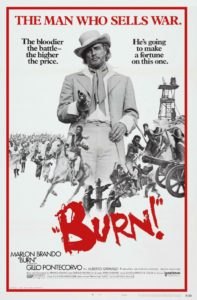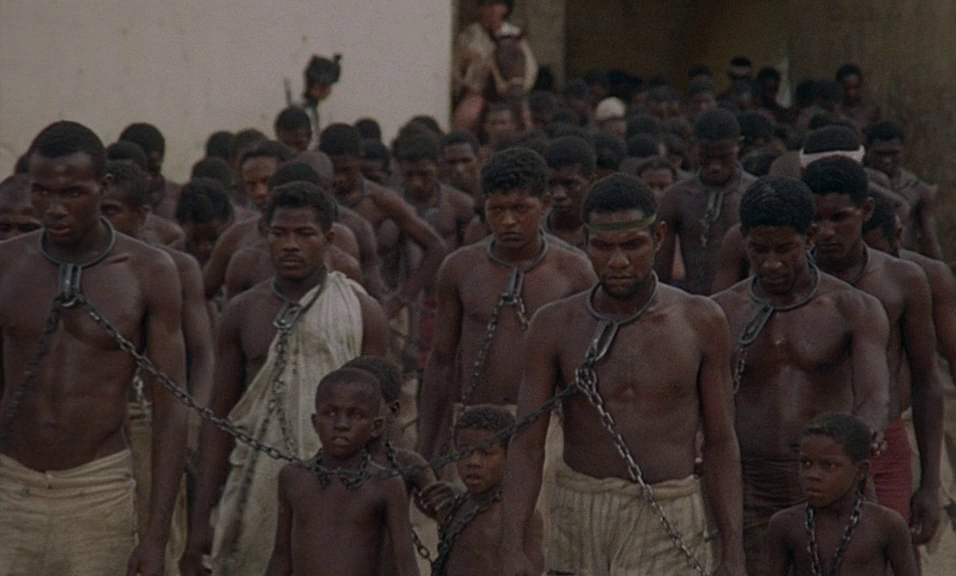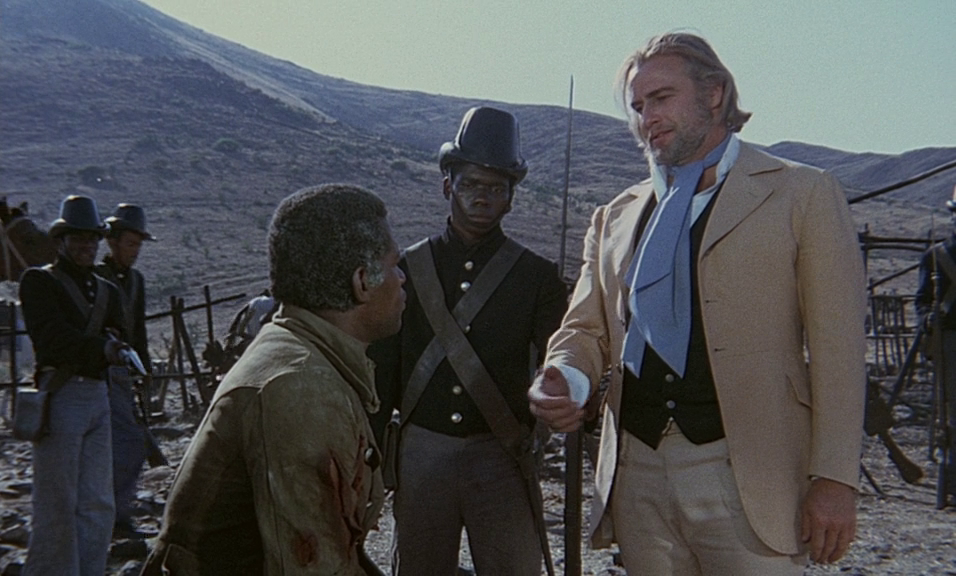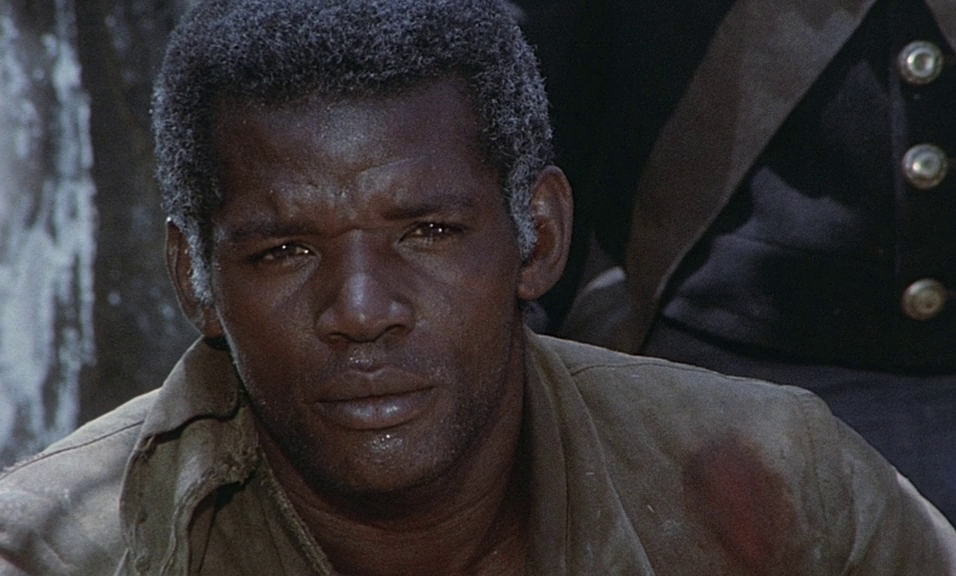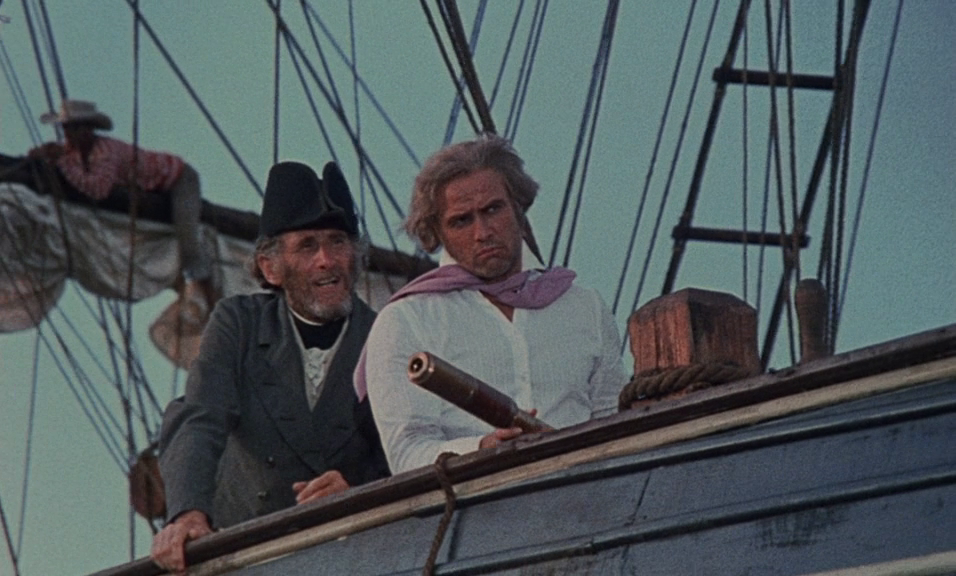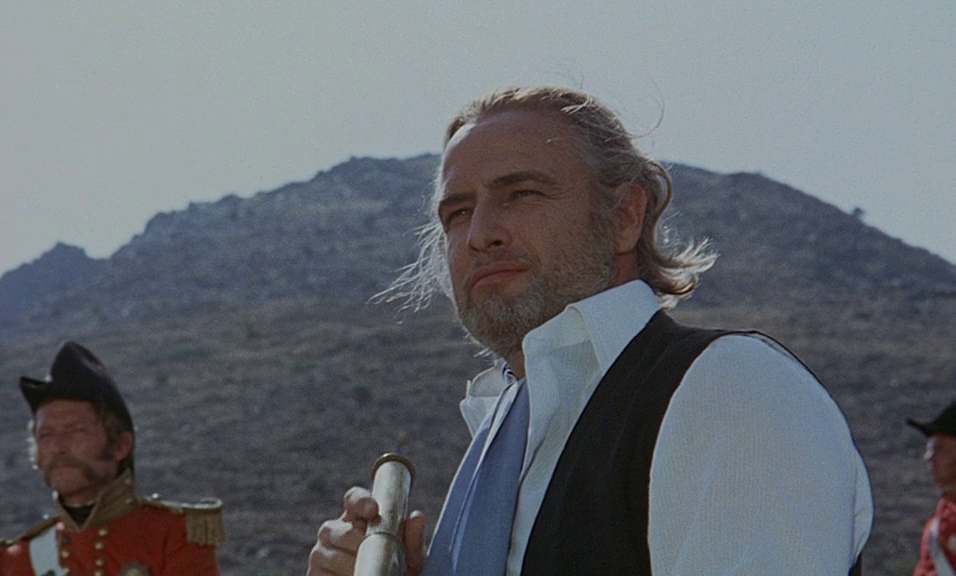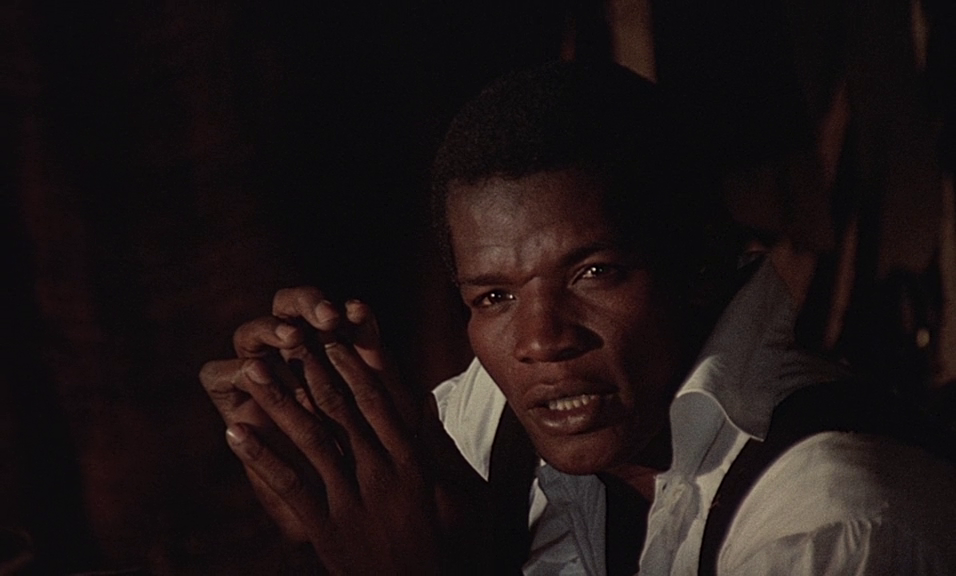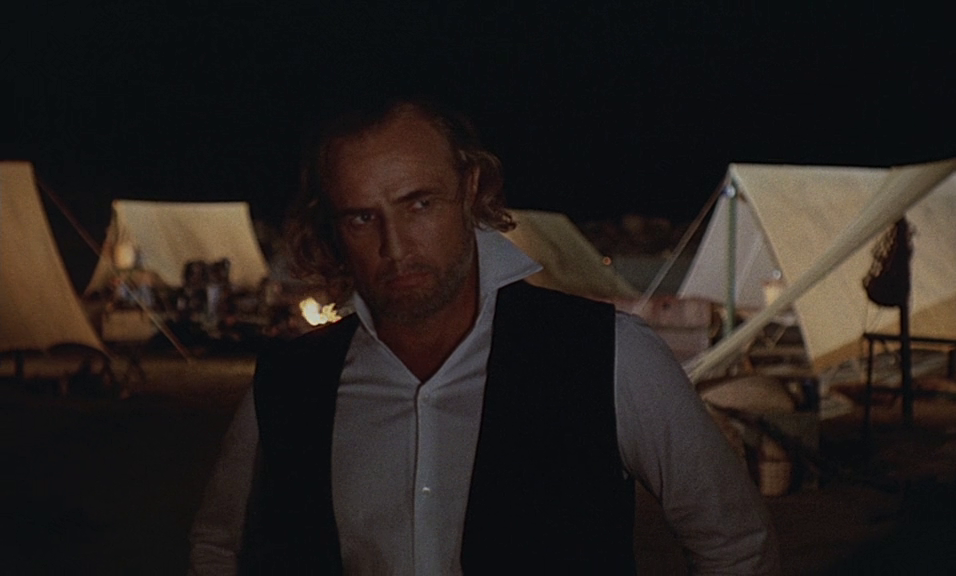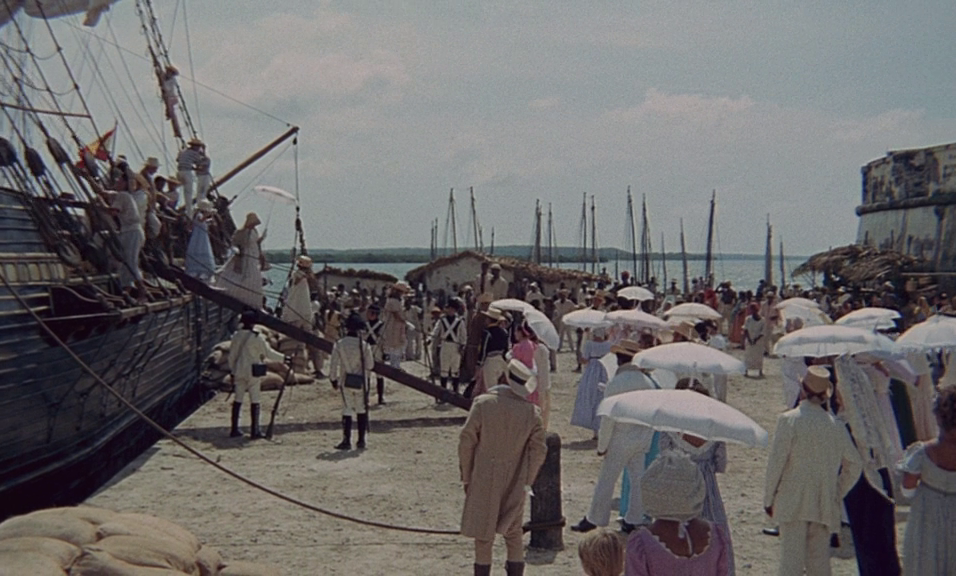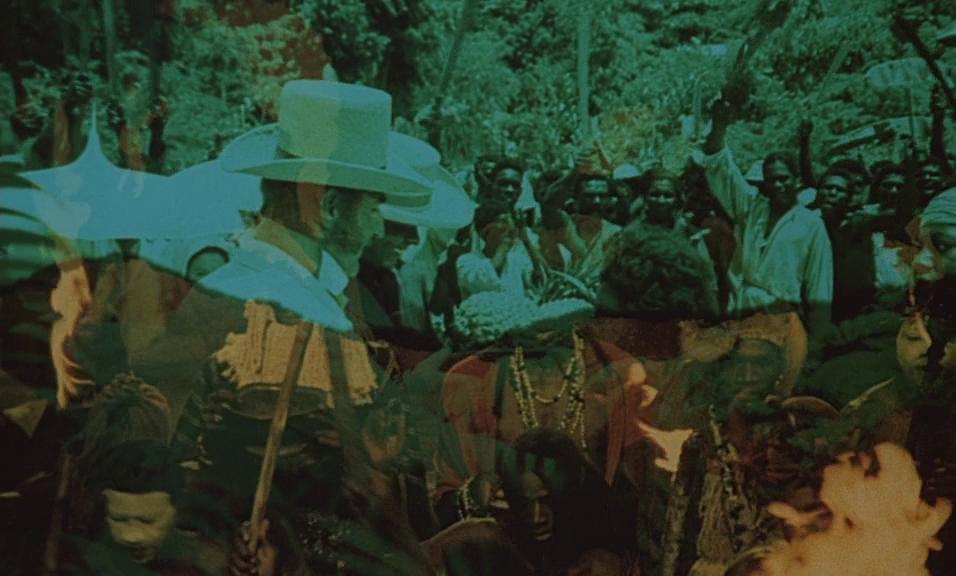Burn! / Queimada! (1969)
“There are no miracles in history — only precise timing and cadence.”
|
Synopsis: |
|
Genres, Themes, Actors, and Directors:
Response to Peary’s Review: Enter into this scenario Brando “in perhaps his most interesting role” as “the intellectual, mannerly British agent Joseph Walker, who teaches the blacks the art of revolution and finds the charismatic man (Dolores)… who can lead them” — then “sees to it that Dolores hands his leadership over” to a mulatto “who will allow the British to control the island as the Portuguese had.” As Peary puts it, “Walker turns out to be not a hero but a bastard, and his friend Dolores is at once disillusioned and politically enlightened” — thus leading to the film’s powerful final section. Peary points out that “with a great rousing score by Ennio Morricone, this is an extremely colorful combination of an old Errol Flynn swashbuckler that had revolutionary spirit and a ‘film of ideas'” with “many historical applications throughout the world.” To that end, “it is, most significantly, the story of revolt against colonialism in Third World [sic] countries,” a “major point of the film” being “that white men cannot comprehend the singular nature of the black [man] and his willingness to fight endlessly for freedom.” Dolores — who “comes across with great dignity” — is “a symbol of the continuing revolution.” Peary goes into further detail about this film in his Cult Movies book, where he posits this film in contrast with “so-called political [American] films which criticize once-sacred cows — the President, people in government, the FBI, the CIA, the police, the military, the courts” — but “typically wait until such criticism becomes fashionable,” thus making such films not “really controversial” but rather “reflect[ing] the popular sentiments of the time” — and, crucially, emphasizing “that their villains are individuals whose actions in the name of America go against everything the American system stands for: they are rotten apples in an otherwise perfect barrel.” Ultimately, “though antiestablishment on the surface, these pictures reinforce our faith in the American way of life, in the American political process,” suggesting “that it is not a sociopolitical system rooted in corrupt, anti-humanistic activities that is the real villain, but the opportunistic, fascistic men who take advantage of such a system.” It is therefore:
In his Cult Movies essay, Peary also describes Brando’s character in a bit more detail, writing:
He “cannot accept that in this godforsaken world people with virtues (people like Jose) exist — if he had known, he might have remained virtuous, too.” That’s debatable — but Brando imbues this complex character with enough subtlety and humanity that we can’t help staying invested in his plight even when he’s at his most vindictive. Notable Performances, Qualities, and Moments:
Must See? Categories
Links: |
